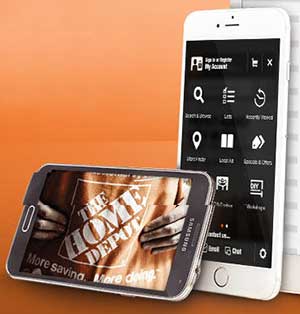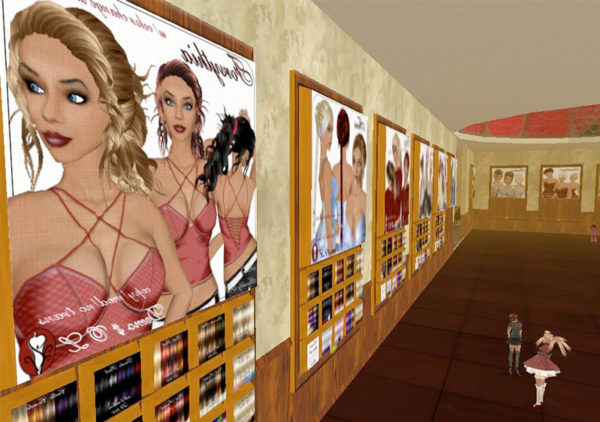Will Virtual Reality Shopping Crush Brick and Mortar Retailers?
We are currently in the second wave of Virtual Reality (the failed era of Nintendo’s “Virtual Boy” being the first) and some big companies have started to look for ways to incorporate VR into their future marketing plans, especially after watching the impact that the internet had on the world’s retail stores. (It’s for this reason that I purchased the domain vrprivatejet.com, thinking that someone might want it for a VR walkthrough of their planes.) No company wants to be caught flat-footed again when there’s another paradigm shift in how people buy books, electronics, clothing, like what happened when so much retail moved to the internet and certain retail sectors such as music and books were crushed. Will VR bring the end of retail? Hardly, but we should expect another big impact as this technology matures.
Victoria’s Secret VR Fashion Show?
What we will start to see is that big companies are going to use VR as a gimmick to get publicity for their brand or product, and then move on to the next headline-grabber. For example, it’s just a matter of time before Victoria’s Secret does a virtual fashion show, where anyone with a VR headset will get a front row seat in 3D as the models walk down the runway, or perhaps pose in front of you on a virtual bed. Does that mean everyone will be buying lingerie using their Oculus Rift? Absolutely not, because some products make sense to sell in today’s VR and others don’t. While in the future, everyone may have a life-size, photo-realistic avatar made of themselves in Facebook’s Metaverse, and it could be used as a virtual mannequin to try on new clothing, it’s still not the same thing as trying on something in reality, to see how it actually feels, and perhaps how it accessorizes with other clothing or jewelry you already own. (I should mention that there are actually experiments being done with haptic technology that let’s you “feel” the texture of fabric virtually: Haptic Glove to Touch on Virtual Fabrics
 In the near term, there will be companies who find useful ways to use VR and AR for retail. For example, Home Depot’s new Augmented Reality project is an interesting start. While this may seem a bit gimmicky at first, they are building a base concept that they’ll be able to expand over time as technology improves. At some point, their customers be able to enter the Home Depot VR store, select an item, and place it inside their homes in AR, if it fits, and it will look real because the lighting will by dynamically calculated to match the actual setting. Then, with the click of a button, they can scroll through dozens of different options until finding the one that works. The next step after that will be a basic AI Interior Design App that selects items for you, based on a budget and the other colors in the room that match. But, as we move farther into the future, perhaps the real furniture in your home will be less important than that in your virtual home, so who can even speculate what retail will be like in 20-30 years?
In the near term, there will be companies who find useful ways to use VR and AR for retail. For example, Home Depot’s new Augmented Reality project is an interesting start. While this may seem a bit gimmicky at first, they are building a base concept that they’ll be able to expand over time as technology improves. At some point, their customers be able to enter the Home Depot VR store, select an item, and place it inside their homes in AR, if it fits, and it will look real because the lighting will by dynamically calculated to match the actual setting. Then, with the click of a button, they can scroll through dozens of different options until finding the one that works. The next step after that will be a basic AI Interior Design App that selects items for you, based on a budget and the other colors in the room that match. But, as we move farther into the future, perhaps the real furniture in your home will be less important than that in your virtual home, so who can even speculate what retail will be like in 20-30 years?
In the meantime, I expect there will some kind of VR retail bubble that bursts when today’s retailers have run through the gimmicks, and that will happen before VR and AR (Augmented Reality) are really high quality enough to blow people’s minds. The low-hanging-fruit of VR retail will be done in the next 2-3 years, and it will be another decade or so before technology, encompassing both VR and AI, is good enough to create more compelling retail experiences beyond that.
How Ikea Will Use VR for Virtual Shopping
At some point, the quality and AI will be there to do some truly amazing things, and virtual shopping malls will become hot spots to shop for products. Those products will need to be modeled in 3D, with realistic textures, sound, etc, so that people can inspect them, and interact with them. For example, if they’re in Ikea’s online VR store, they’re going to want to be able to knock on the top and hear what it sounds like, and be able to open the drawers to see what they look like inside. And like with the Home Depot app discussed above, they should be able to place it in their home using AR, to see how it looks there, or even if it fits, and the app should understand the lighting in the room so that it looks natural.
For a big company like Ikea, it’s affordable to create 3D rendered models of all their products (they probably have them anyway from their design team) but for the thousands of small retailers and small run products, this will be impossible. I expect to see more business shift to the big companies, and everyone in the retail sector will have to adapt. At the same time, more value will probably be placed on antiques and unique hand-crafted items that we don’t find in the VR world except perhaps as simple 360 3D scans that aren’t interactive.
So VR stores aren’t going to fully replace brick and mortar retailers anytime soon. It will be many decades before you’ll be able to interact with a salesperson in VR space in any way that starts to approach reality, and that’s incredibly important, and fun to many people. In the meantime, VR retailing will be mostly about convenience, and a way to quickly scan through a lot of products in a more compelling fashion than what we can do now at Amazon.com. And compelling personalization in VR is still a long way off. In 50 years, perhaps we’ll have AI technology that automatically scans everything and puts it into VR for us with all its properties of gravity, hardness, flexibility, etc, but for the next couple of decades at least, most of VR will be a limited, but growing part of the retail experience.
https://virtualrealitytimes.com/2016/02/12/will-virtual-reality-shopping-crush-retailers/https://virtualrealitytimes.com/wp-content/uploads/2016/07/VR-Shopping-600x422.jpghttps://virtualrealitytimes.com/wp-content/uploads/2016/07/VR-Shopping-150x90.jpgEditorialShoppingWe are currently in the second wave of Virtual Reality (the failed era of Nintendo's 'Virtual Boy' being the first) and some big companies have started to look for ways to incorporate VR into their future marketing plans, especially after watching the impact that the internet had on the...Geoff McCabeGeoff McCabe[email protected]AdministratorVirtual Reality Times - Metaverse & VR

